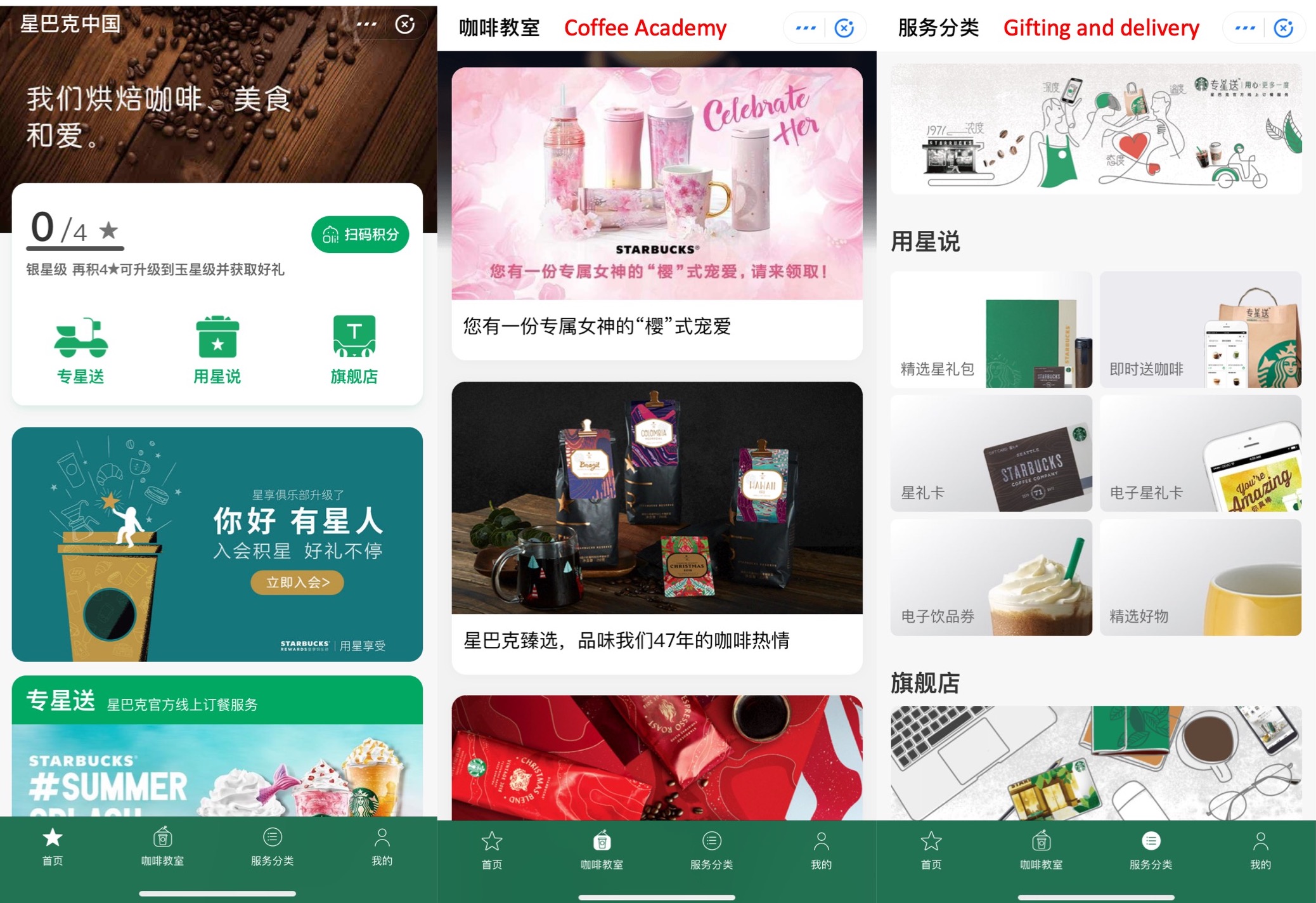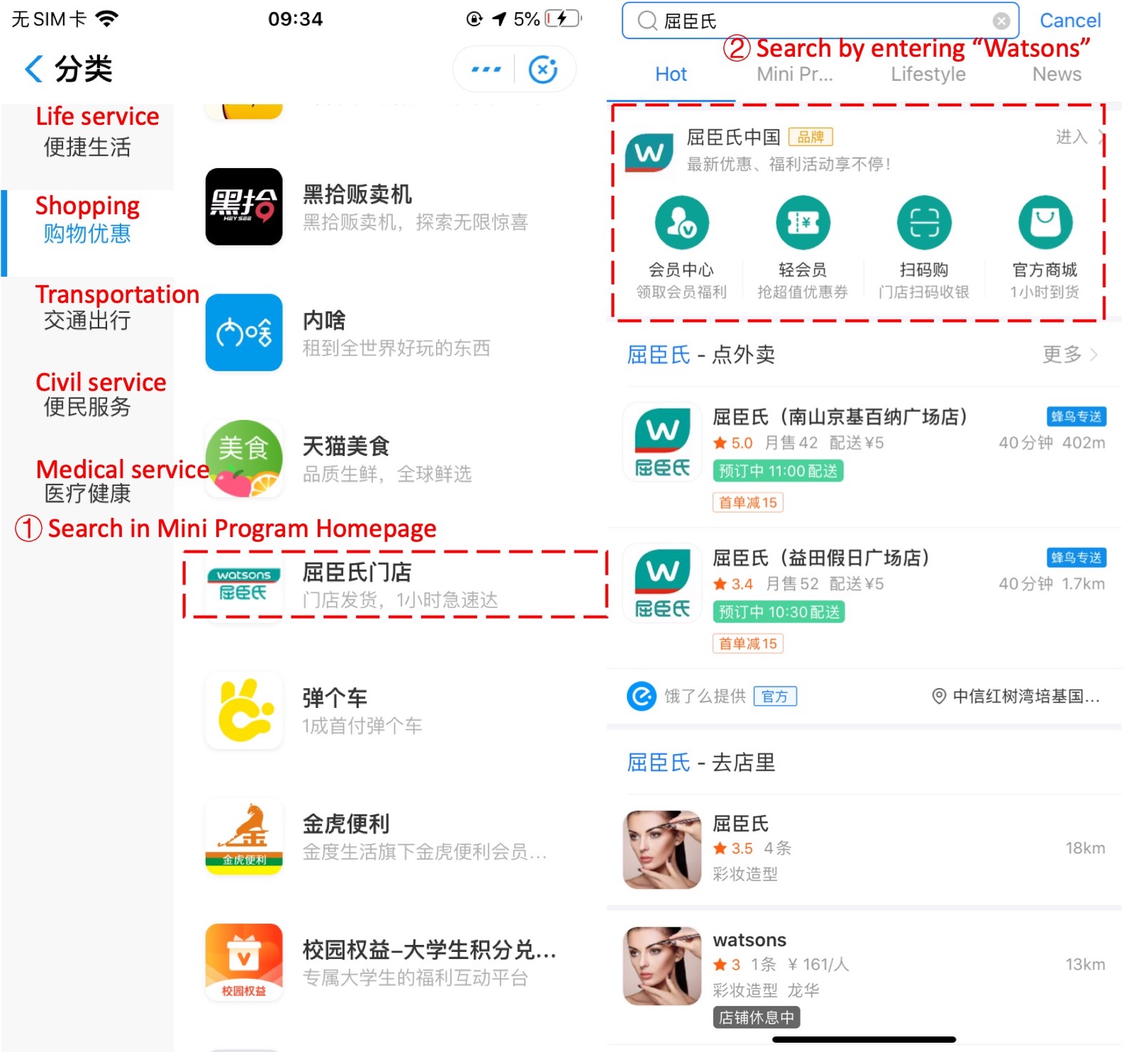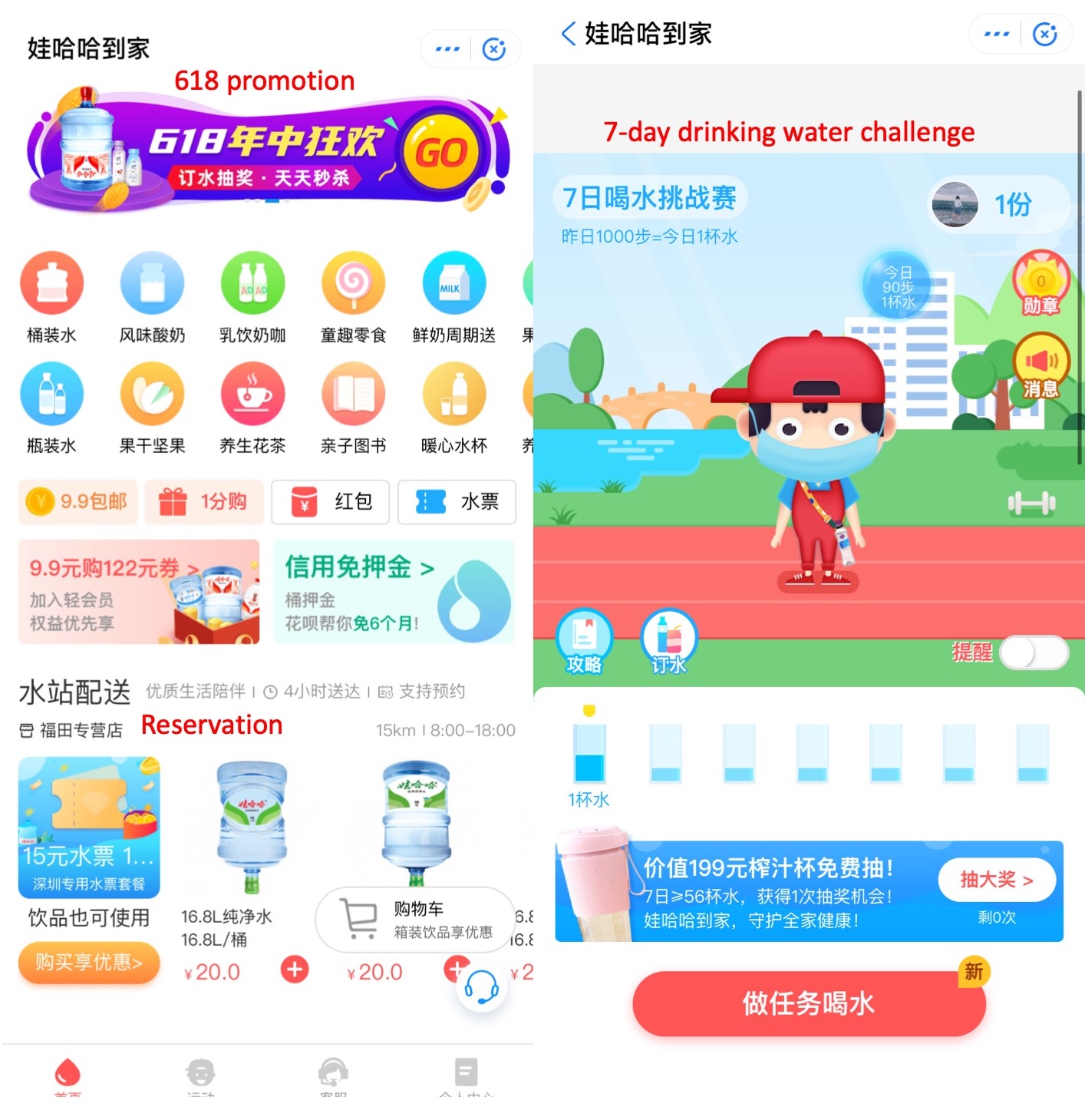3 Alipay Mini-Programs to Watch Out for in China Retail
Driven by revenue shortfalls caused by Covid-19 lockdowns, over 800 merchants have set up Alipay mini-programs over the last few months.
by Ker Zheng & Queenie Yao
WeChat mini-programs have seen resounding success over the past few years, with 849 million monthly active users (MAU) using them as of April.
While competitor Alipay started launching mini-programs in 2018, they have yet to take off. But driven by revenue shortfalls caused by Covid-19 lockdowns, over 800 merchants have set up Alipay mini-programs over the last few months.
We highlight three Alipay mini-programs, from the likes of Starbucks, pharmacy chain Watsons, and bottled water brand Wahaha, in order to illustrate what they are and what they can do.
Starbucks
Starbucks’ Alipay mini-program focuses on providing a one-stop solution for shopping and lifestyle-related experiences.
If you search for “Starbucks” (“星巴克”) on Alipay, you can access Starbucks's mini-program. The key functions are:
1. Online ordering and on-demand delivery. Third-party delivery platforms will deliver Starbucks drinks to your doorstep
2. Membership program. The mini-program tracks repeat purchases and gives incentives and gifts based on user history.
3. Online gift cards. Users can buy and send virtual gift cards to friends. (far right)
4. Browse official Starbucks content and announcements. This includes promotions for certain holidays such as Womens Day (see middle)
![]()

The concept of the mini-program is to take advantage of high-frequency Starbucks and Alipay users, and provide more value-added services to keep them coming back for more. Functions such as loyalty programs, on-demand delivery, and online gift card gifting are ways to do this.
Watsons
Hong Kong health & pharmacy retailer Watsons has taken Alipay mini-programs to the next level by integrating its applet with over 4,000 offline retail stores in China.
The below diagram gives us more details. The left-hand picture demonstrates how you can find the Watson mini-program under the Shopping tab.
The right-hand diagram shows how you can find it by searching for Watsons.

In the search results (right) are four sub-sections:
1.Membership center
2.“Light members” (coupons)
3.Offline retail scan-and-go (scan product bar codes to purchase)
4.Official e-commerce platform (ordering and 1-hr on-demand delivery)
In short, the mini-program enables the end customer to purchase items in both offline and online settings.
The scan-and-go function enables him/her to pick up an item off the shelf, scan the bar code, and pay with Alipay, avoiding the cash register altogether.
The e-commerce platform enables the customer to buy products that they forgot about or were out of stock in offline retail stores.
Lastly, users can also order items online and reserve them for self-pick-up at nearby offline pharmacy stores at their own convenience.
Wahaha Daojia
Chinese retailer Wahaha became well-known as a national bottled water brand in the 2000s, and has since expanded its product lines to include flavored drinks, dairy products such as yogurt, and even dried snacks.
Its new mini-program incorporates several of these product lines and has accumulated over 8 million registered users and 300,000 daily active users (DAUs) since launching in 2018.
Much of its traffic comes from its membership and community content channel, which provides users with information about promotions and discounts.
Currently there is an online 7-day drinking water challenge game that encourages people to walk more and drink more water. Users have a chance to win prizes if they hit certain milestones.

Interactive games such as the one depicted above are designed to enhance user retention and encourage repeat purchases.
Lastly, there is an online ordering function that enables customers to order water cooler tanks delivered straight to their door within four hours, using Alibaba’s food delivery platform Ele.me.
Can Alipay Mini-Programs Take Off?
Alipay mini-programs are at a disadvantage in that users spend far less time per day on Alipay, at least when compared to WeChat.
Users typically only use Alipay for its payment function, and are less likely to browse for content or e-commerce deals.
While e-commerce platforms Taobao/Tmall and food delivery platform Ele.me are in the Alibaba ecosystem, users are much more likely to make purchases on their individual apps, not through Alipay.
However, there are opportunities in online-offline integration, as seen in the examples above. If merchants can provide integrated online-offline loyalty & membership programs, then the incentives might just be enough to encourage repeat purchases.
In short, while Alipay has a large user base, the challenge is in convincing the users to spend more time browsing on the app. Functions such as loyalty programs, omnichannel ordering, and interactive games are ways to do this.
Key Takeaways
1. Alipay is stepping up its recruitment of merchants for its mini-programs, and many have opened stores on the platform in response to Covid-19 lockdowns.
2. Starbucks, Watsons, and Wahaha are just some of the major retail players to have launched official mini-programs on Alipay.
3. Alipay’s main challenge is in getting people to spend more time on the platform and view it as more than just a payments platform. Setting up loyalty programs, omnichannel ordering, and interactive games are ways to do so.